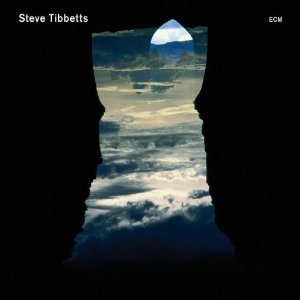 It would be easy to say that Tibbett’s new album, Natural Causes, is beautiful, sublime, or elegant. It would be easy to address its austerity, restraint, or subtlety. We might even come at it from the perspective of the good old music theorist who attempts to dissect each song into its modal qualities, its shifting rhythms, or the complexities of its harmonic structure. Both the adjectival and the rational/theoretical approach somehow fall far short of conveying Tibbetts’ real achievement here: the transmission of spiritual immanence. We could certainly begin such a discussion by pointing to his previous work with Choying Drolma – Cho (1997) and Selwa (2004) – both of which floated as if carried by clouds. But it seems shallow to write off the felt sense of timelessness as a product of the East. If we were to sink into the imagistic we could just as easily find ourselves in the sanctuary of Augustin or Aquinas as in the temple of the Tibetan monk; we might feel the bite of Himalayan wind or the warmth of a Central American cove; we could be exploring the pattern of clouds through a tangle of redwood or gazing from an office window, high above the city streets, at (or in a more tender moment, through) the swarming mass of humanity – the hungry ghosts, each with their joys and sorrows. It is true – this music conjures the East but it is also distinctly Western. Somehow, though, these labels, upon closer inspection, dissolve. But the result is not some watered down “world music” merely appropriating the Sounds of another culture into a commodified phantasm – but a seamless blending of spiritual wisdom-gleaned with the natural spirituality of inherited place. Tibbetts’ time in Tibet is palpable, but it is impossible not to feel the years of Minnesota winters crystallizing through his music. It feels tacky to insert some kind of pugnacious plug of popular global village rhetoric here. Perhaps a subtler reference toward Teilhard de Chardin might be in order:
It would be easy to say that Tibbett’s new album, Natural Causes, is beautiful, sublime, or elegant. It would be easy to address its austerity, restraint, or subtlety. We might even come at it from the perspective of the good old music theorist who attempts to dissect each song into its modal qualities, its shifting rhythms, or the complexities of its harmonic structure. Both the adjectival and the rational/theoretical approach somehow fall far short of conveying Tibbetts’ real achievement here: the transmission of spiritual immanence. We could certainly begin such a discussion by pointing to his previous work with Choying Drolma – Cho (1997) and Selwa (2004) – both of which floated as if carried by clouds. But it seems shallow to write off the felt sense of timelessness as a product of the East. If we were to sink into the imagistic we could just as easily find ourselves in the sanctuary of Augustin or Aquinas as in the temple of the Tibetan monk; we might feel the bite of Himalayan wind or the warmth of a Central American cove; we could be exploring the pattern of clouds through a tangle of redwood or gazing from an office window, high above the city streets, at (or in a more tender moment, through) the swarming mass of humanity – the hungry ghosts, each with their joys and sorrows. It is true – this music conjures the East but it is also distinctly Western. Somehow, though, these labels, upon closer inspection, dissolve. But the result is not some watered down “world music” merely appropriating the Sounds of another culture into a commodified phantasm – but a seamless blending of spiritual wisdom-gleaned with the natural spirituality of inherited place. Tibbetts’ time in Tibet is palpable, but it is impossible not to feel the years of Minnesota winters crystallizing through his music. It feels tacky to insert some kind of pugnacious plug of popular global village rhetoric here. Perhaps a subtler reference toward Teilhard de Chardin might be in order:
Teilhard was a Catholic philosopher best known for his revolutionary revision of evolution. Instead of the traditional phylogenic approach begun by Darwin and his ilk, Teilhard used Consciousness as his common thread… all the way down… to the molecular… It is all Consciousness. He gifted us with a spiritual telos involving what he called the Noosphere – a sphere of thought arising naturally from the Biosphere (the sphere of Life). Technocrats might refer to this phenomenon as a manifestation of the Internet; the Earth centric among us may claim that Gaia herself has reached a new stage of her own consciousness through human thought; a cosmologist might see this nexus of self-reflection as the Universe looking back at herself. For Teilhard, though, it is Life moving into the purely spiritual. Music has the capacity to act as a bridge to the non-rational, pre-verbal depths of consciousness – a world prior to the imagistic land of dream; prior to light and shadow; a world close to the skin – that permeable membrane “separating” our inside from our outside. Music also acts as a vehicle of transcendence to the diaphanous realms of spirit. Tibbetts and his long-time percussionist Marc Anderson traverse the vertical trajectory of the spirit, but also walk lightly along the horizontal – the connections that make us all too human, the aesthetics of culture and geography, the ineffable world of Feeling. So, yes, Natural Causes is beautiful; it is elegant; there is a depth of restraint and subtlety. But how do we begin to describe the complex relationship of transcendence and immanence? Words fall short in our attempts to describe the “space between”. Perhaps this is where we turn to music as an expression of our pre-linguistic experience, and expression of that elusive quality we call Compassion.
One song that was not included on the cd is a cover of Villanova Junction by Jimi Hendrix. Here’s a taste: